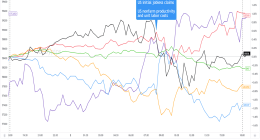While gizmos such as Apple’s AirTags are undeniably useful, they carry with them the danger of privacy abuses
Once upon a time, intensive surveillance was a prerogative of states. After the arrival of the internet, and especially the rise of companies such as Google and Facebook, ISPs (internet service providers) and mobile networks, it became a prerogative shared between the state and private companies – corporations that log everything you do online. Surveillance became a kind of public-private partnership. The companies do much of the work and readily cooperate with security agencies when they come armed with a warrant.
Way back in 2009 the German Green politician Malte Spitz went to court to obtain the data that his mobile phone operator, Deutsche Telekom, held on him and then collaborated with the newspaper Die Zeit to analyse and visualise it. What emerged was a remarkably detailed timeline of his daily life, a timeline that would have been readily available to state authorities if they had come for it with appropriate legal authorisation.





